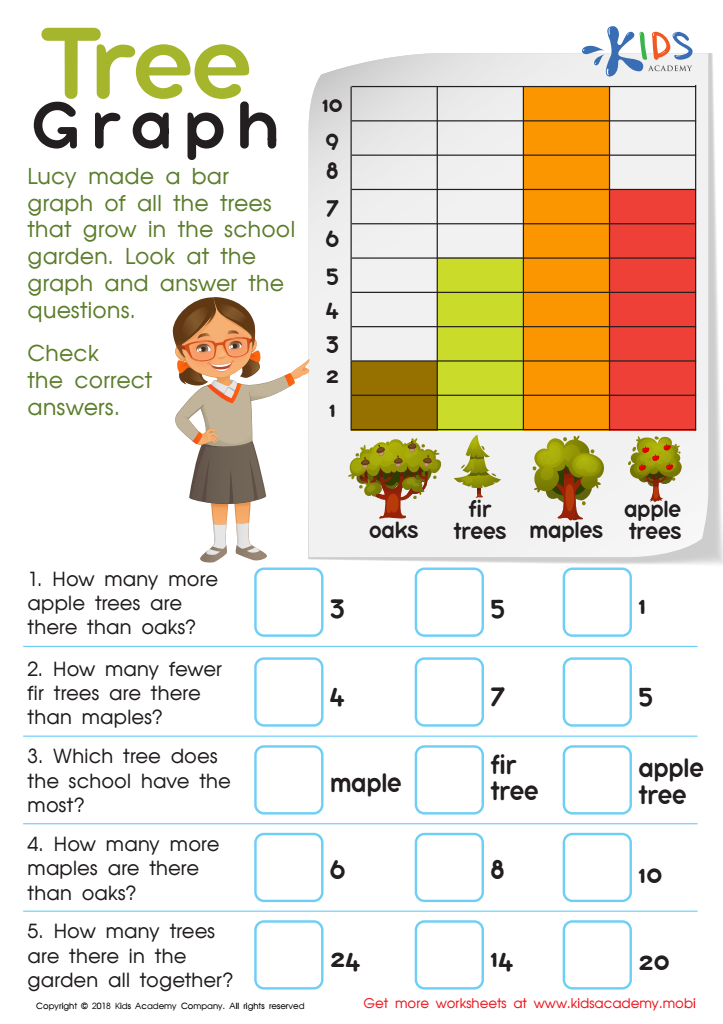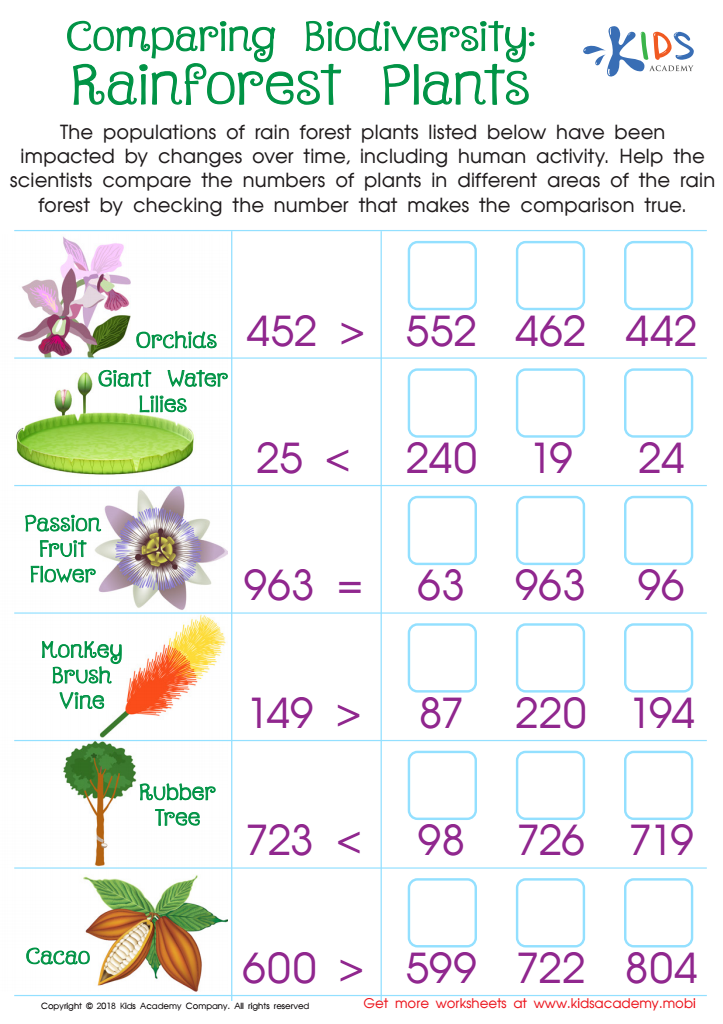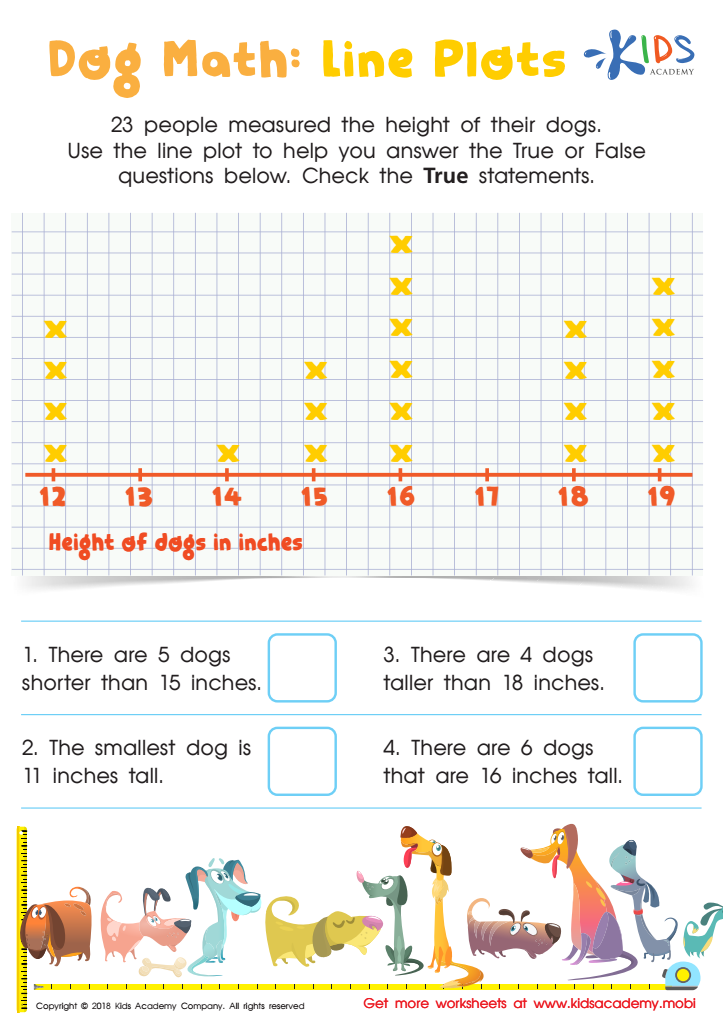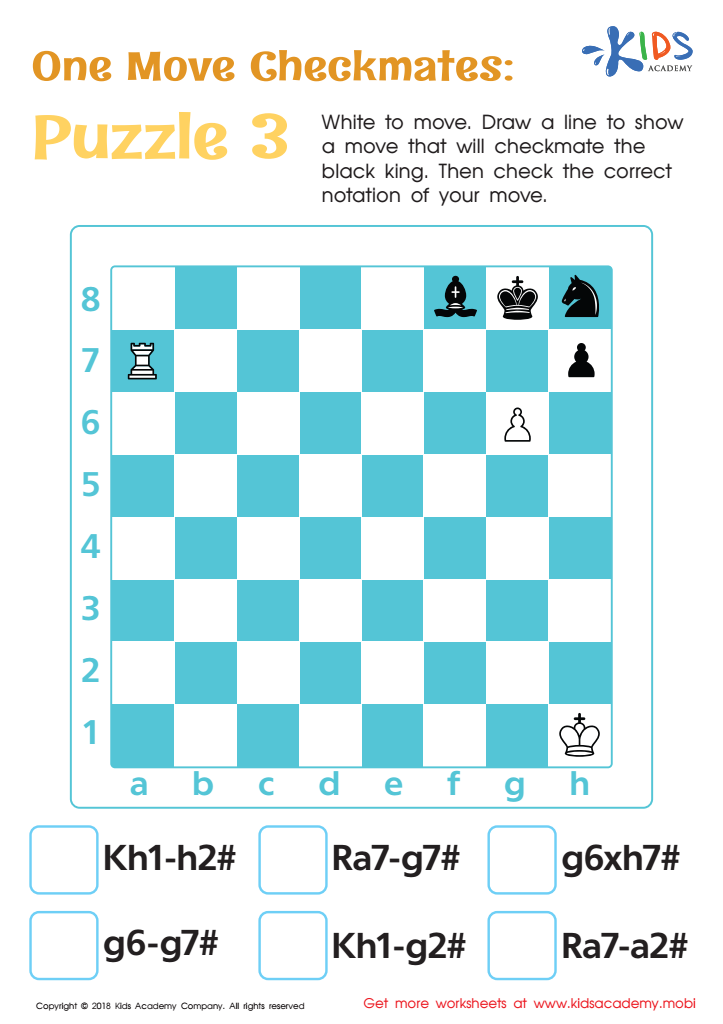Analytical skills development Math Worksheets for Ages 6-8
4 filtered results
-
From - To
Our Analytical Skills Development Math Worksheets for Ages 6-8 provide young learners with engaging activities designed to enhance their critical thinking and problem-solving abilities. Tailored for children in their formative academic years, these worksheets cover a variety of mathematical concepts including pattern recognition, logical reasoning, and data analysis. Each worksheet is crafted to be both educational and fun, ensuring that children actively enjoy the learning process. Perfect for use at home or in the classroom, our worksheets are an excellent resource for parents and teachers aiming to build a strong mathematical foundation and analytical skills in their students.


Tree Graph Worksheet


Comparing Biodiversity: Rainforest Plants Worksheet


Dog Math: Line Plots Worksheet


One Move Checkmates: Puzzle 3 Worksheet
Developing analytical skills in mathematics for children ages 6-8 is crucial for their cognitive and academic growth. At this formative stage, fostering these skills aids in enhancing their problem-solving and critical thinking abilities—competencies essential for their future education and everyday life. Analytical skills enable children to understand and process information, break down complex problems, and develop logical solutions. These capabilities not only form a strong mathematical foundation but also apply to other subjects.
Furthermore, early mathematics education is often seen as a predictor of later academic success. By engaging young learners with activities that encourage analytical thinking, parents and teachers can instill a positive attitude towards math, reducing anxiety and building confidence. Activities such as pattern recognition, simple arithmetic, and logical puzzles can make learning fun and stimulating, helping kids associate math with creativity and enjoyment.
Moreover, these skills translate into valuable life skills. They teach children to approach tasks methodically, reason through consequences, and make informed decisions—a fundamental aspect of everyday problem-solving and critical thinking. Parents and teachers who prioritize the development of analytical skills in math equip children with the tools to navigate more complex concepts in higher education and to tackle challenges they will inevitably face throughout their lives.
 Assign to My Students
Assign to My Students





















